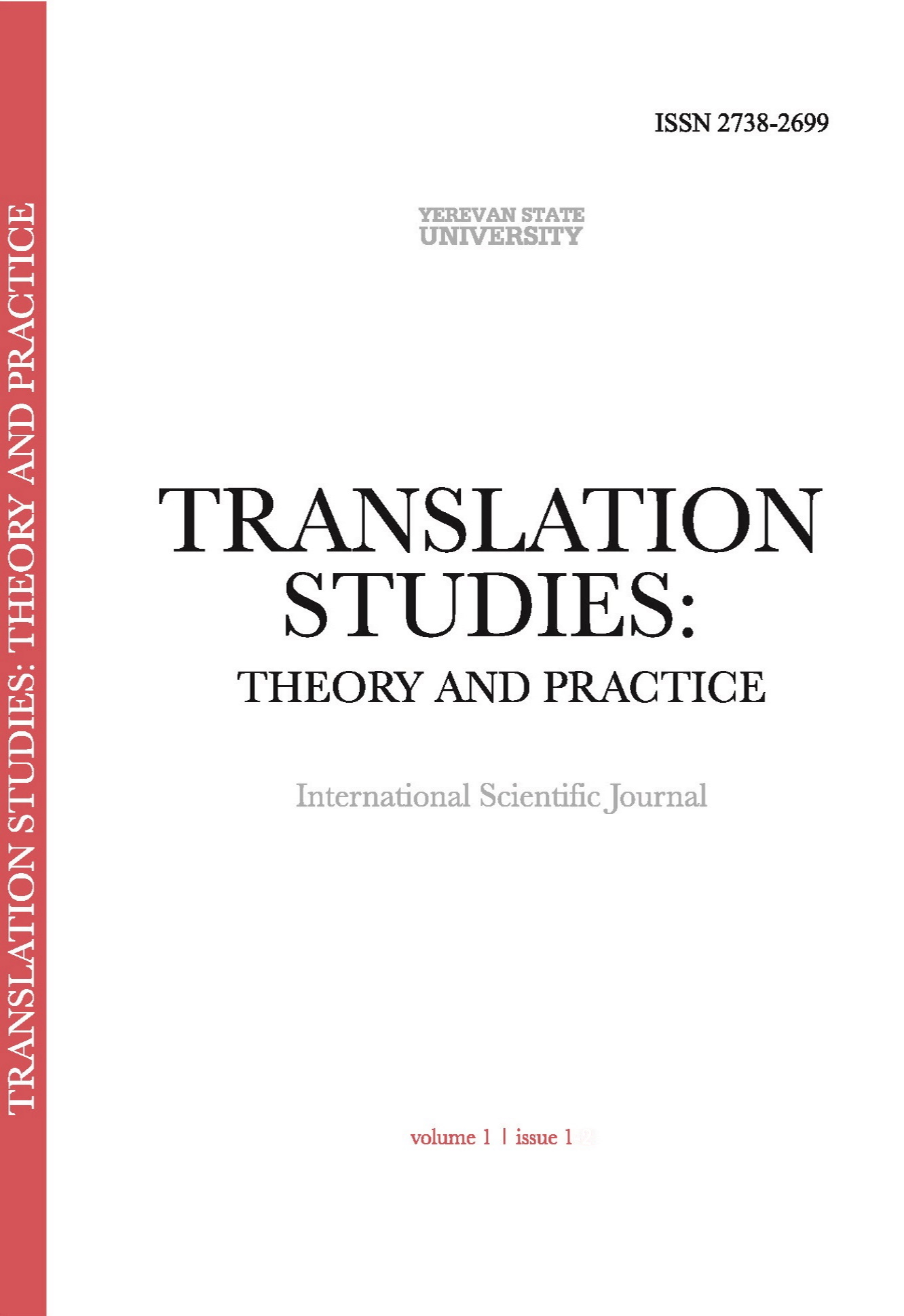Metamorphosis in Fairy Tale Translation: Lingucognitive Perspective
DOI:
https://doi.org/10.46991/TSTP/2021.1.1.64Keywords:
fairy tale, linguocognitive, metamorphosis, stylistic device, translationAbstract
The present article is an attempt to study and reveal linguocognitive properties of metamorphosis in line with its translation. The data analysis of this research is carried out on the fairy tale “At the Back of the North Wind” by Scottish fairy tale writer George MacDonald. Theoretical framework keenly touches upon Local translation strategies suggested by Chesterman and model of metamorphosis by Moskvichova. The article meticulously outlines the stylistic and cognitive nature of metamorphosis through which conversion of the transformative into the transformed along with compelling explication of the reasons for the change- its cause- and verb markers/predicates sum up the concept of conversion and transformation.
References
Chenetier, Marc. 1992. “Metamorphoses of the Metamorphoses: Patricia Eakins, Wendy Walker, Don Webb.” In New Literary History 23, 383-400. Baltimore: The Johns Hopkins University Press.
Chesterman, Andrew. 1997. Memes of Translation: The Spread of Ideas in Translation Theory. Amsterdam and Philadelphia: John Benjamins Publishing.
Carpenter, Humphery, and Mari Prichard. 1995. The Oxford Companion of Children’s Literature. New York: OUP.
Jakobson, Roman. 1990. “Two Aspects of Language and Two Types of Aphasic Disturbances.” In On Language by Roman Jakobson, 115-133. Cambridge: Harvard University Press.
Jivanyan, Alvard. 2007. The Fairy Tale as an Archetext. Yerevan: Zangak-97.
Kövecses, Zoltan. 2004. Metaphor and Emotion: Language, Culture and Body in Human Feeling. Cambridge: Cambridge University Press.
Mandelblit, Netanyahu. 1995. “The Cognitive View of Metaphor and its Implications for Translation Theory.” In Translation and Meaning, part 3, 483-495. Maastricht: Universitaire Press.
Mikkenon, Kai. 1996. “Theories of Metamorphosis: From Metatrope to Textual Revision.” In Style 30.2, 309-340. PDF file.
Massey, Irving. 1976. The Gaping Pig: Literature and Metamorphosis. Berkeley: University of California Press.
Lakoff, George, and Johnson Matthey. 1980. Metaphors We Live by. Chicago: University of Chicago Press.
Le Guern, Michel. 1981. “La metamorphose poetique: Essai de definition.” In Poethiques de la metamorphose by G. Demerson, 27-36. Saint-Etienne: Publications de l' Universite de Saint-Etienne.
Todorov, Tsvetan. 1975. The Fantastic: A Structural Approach to a Literary Genre. New York: Cornell University Press.
Tomlinson, Charles. 1983. Poetry and Metamorphosis. Cambridge: Cambridge University Press.
MacDonald, George. 1994. At The Back of the North Wind. Hertfordshire: Wordsworth Classics.
Arutyunova, Nina D., J'urinskaya, Marina A. 1990. Teoriya Metafory. Moscow: Progress.
Moskvicheva, Oksana. 2015. "Metamorfoza v angliiskih poeticheskih tekstah XIX-XX vekov: lingvosemioticheskii i lingvokognitivnyi aspekty". Kognatsiya, kommunikatsiya, diskurs. No 11, 87-108: https://drive.google.com/file/d/1nzfcmobtXEbzSIbVYEot2yecJWv8cW2p/view
Rozental', Ditmar. 2013. Spravochnik po stilistike Russkogo Yazyka. Moscow: Airis-Press.
Downloads
Published
How to Cite
Issue
Section
License
Copyright (c) 2021 Diana Hayroyan, Irina Mkhitaryan

This work is licensed under a Creative Commons Attribution-NonCommercial 4.0 International License.










